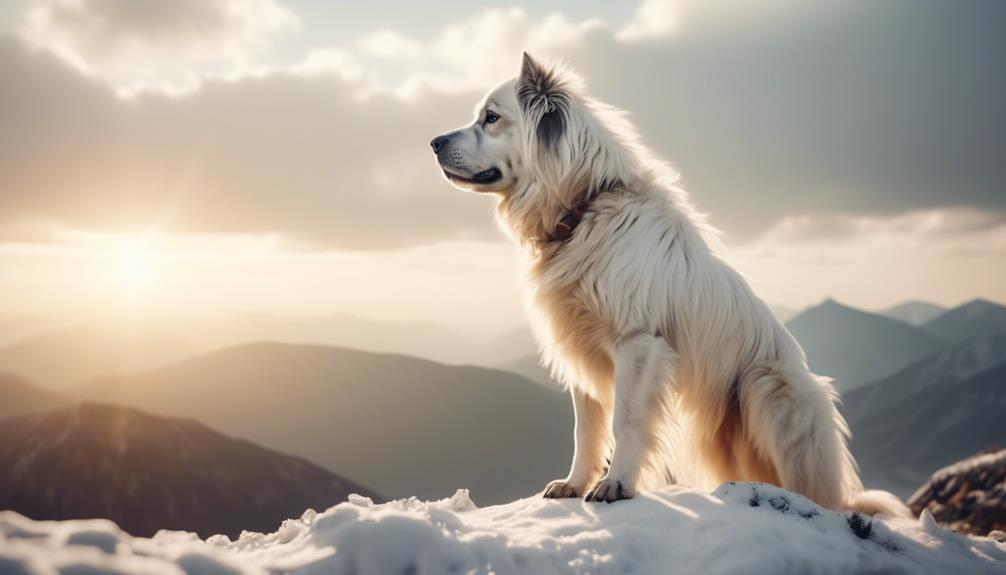
Coincidentally, you’ve been searching for the perfect dog breed to join your family, and the Tornjak might just be the one.
With its origins in Bosnia and Herzegovina and Croatia, the Tornjak breed possesses a unique set of characteristics that make it a remarkable companion.
From their stunning appearance to their loyal and protective nature, there is much to discover about these magnificent dogs.
So, let’s uncover the fascinating world of Tornjaks and explore why they could be the ideal addition to your home.
Key Takeaways
- Tornjaks are a large working breed from Bosnia and Herzegovina and Croatia.
- They have a long, dense coat in various colors and can weigh between 60 to 110 pounds.
- Tornjaks can adapt well to apartment living, but energy levels and behavior towards neighbors should be considered.
- They are affectionate with family members, loyal, protective, and intelligent. Proper training and socialization are important to manage aggression and fear-based behaviors.
Origin and Size
The Tornjak dog breed originated in Bosnia and Herzegovina and Croatia. They are classified as a large-sized working breed. These dogs have a long, dense coat that comes in a variety of colors. They have a height ranging from 23 to 28 inches at the shoulder and weigh between 60 to 110 pounds. Females are generally smaller than males, but there can be variations in individual dogs’ size.
Tornjaks are known for being a medium to large-sized breed. Their size and working abilities make them suitable for various tasks. Whether it’s herding livestock or guarding property, the Tornjak is up to the task. Their origin and size contribute to their distinctive appearance and impressive presence.
See another Dog breed profile.
Tosa Dog Breed
Adaptability and Living Environment
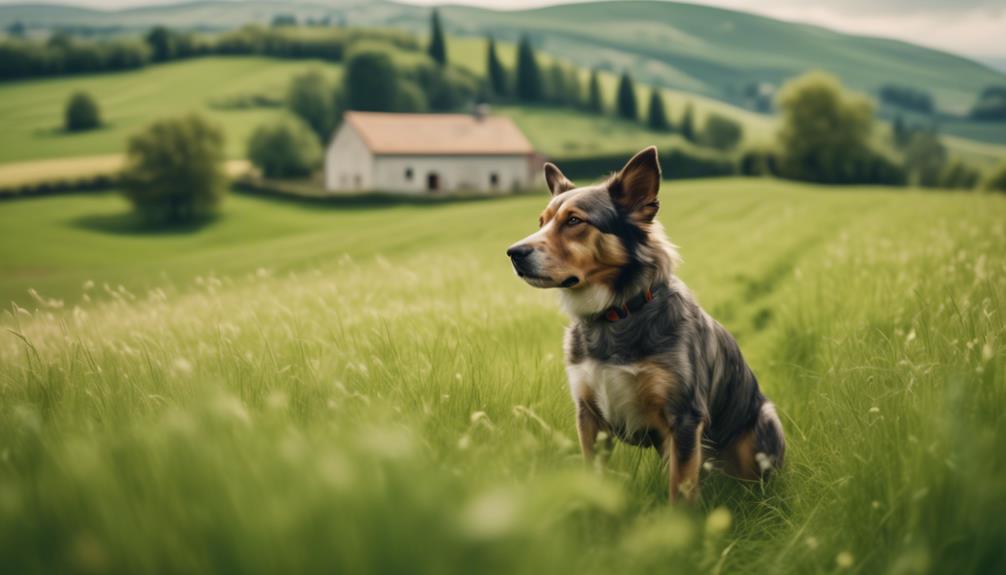
Now let’s explore how the Tornjak dog breed adapts to different living environments. Tornjaks are known to adapt well to apartment living, although their size alone should not determine suitability. Factors such as energy levels and behavior towards neighbors should also be considered. While certain small breeds can thrive in apartments, it is important to prioritize qualities like being quiet and low-energy. When choosing a dog for an apartment, it’s crucial to consider the living environment and proximity to other residents in order to create a harmonious living environment for everyone involved. Here’s a table that summarizes the adaptability of Tornjaks in different living environments:
| Living Environment | Adaptability |
|---|---|
| Apartment | Yes |
| House with Yard | Yes |
| Rural Area | Yes |
| Urban Area | Yes |
| Suburban Area | Yes |
As you can see, Tornjaks are adaptable and can thrive in various living environments.
Temperament and Behavior
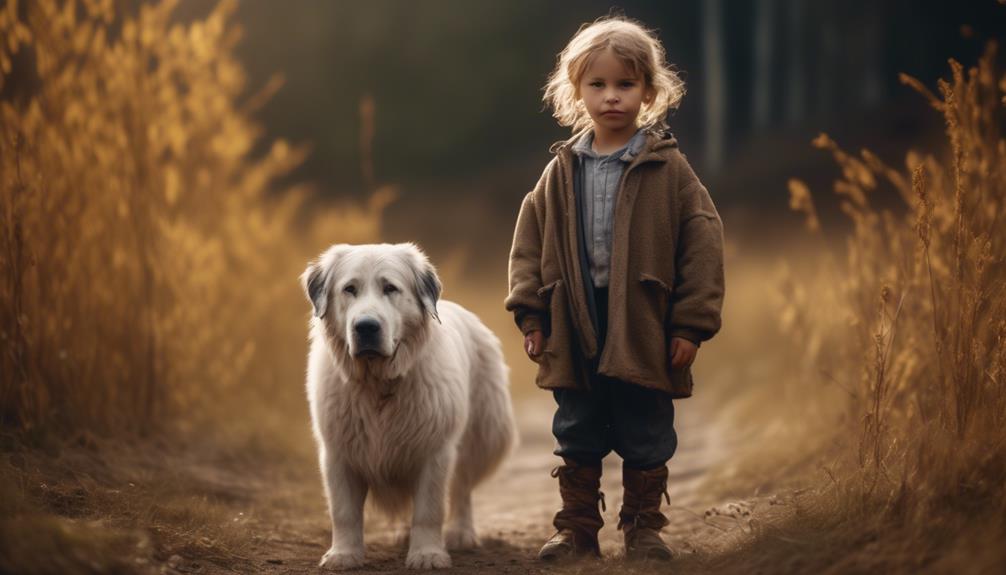
When considering the temperament and behavior of Tornjak dogs, it’s important to note their affectionate nature towards family members. Tornjaks are known to exhibit deep affection for those in their immediate vicinity. They’re loyal and protective, making them excellent family companions.
However, they can be suspicious of strangers, showcasing their innate guarding instincts. Tornjaks are intelligent and trainable, which makes them adaptable to various situations. It’s important to provide proper training and socialization from a young age to ensure their well-rounded development.
Understanding the underlying causes of aggression, which is often rooted in fear and anxiety, can help address and prevent it. Seeking professional help from a dog behaviorist or trainer is recommended for dealing with aggression.
Aggression and Fear Management

To effectively manage aggression and fear in Tornjak dogs, it’s important to understand the underlying causes and seek professional help when needed.
Aggression in dogs is often rooted in fear and anxiety, and it can be directed towards humans or other animals. Fear-based aggression can be managed through proper training and socialization, but it requires a knowledgeable and experienced approach.
Understanding the underlying causes of aggression is crucial in addressing and preventing it. If you notice signs of aggression or fear in your Tornjak, it’s recommended to consult a dog behaviorist or trainer who specializes in aggression management.
They can provide guidance, develop a behavior modification plan, and help you create a safe and harmonious environment for your dog and those around them.
Tendency to Wander and Bark
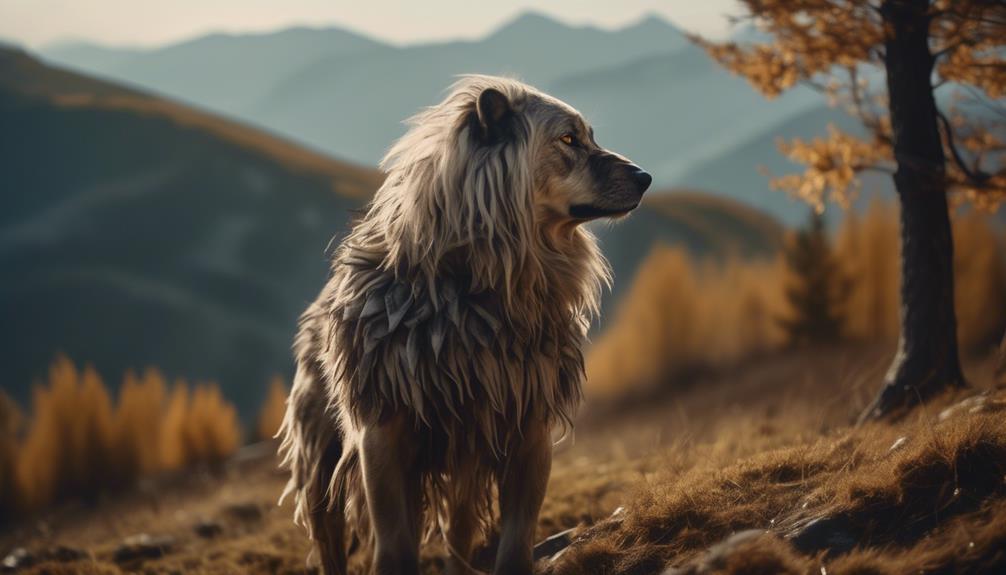
Tornjak dogs have a natural tendency to wander and bark, which should be taken into consideration when choosing this breed. Dogs with this inclination may wander into dangerous situations, risking encounters with snakes and wild animals. To prevent wandering, proper containment measures such as secure fencing should be in place. Training and supervision are also essential to keep them from straying into hazardous areas. Additionally, some Tornjaks are more prone to barking or howling than others. If you live in a noise-restricted area or have close neighbors, you may want to consider a quieter breed. Breeds known for being watchdogs may bark more frequently. Assess your tolerance for frequent barking before selecting a Tornjak.
| Pros | Cons | Recommendations |
|---|---|---|
| Loyal and protective | Tendency to wander | Proper containment measures |
| Intelligent and trainable | Tendency to bark | Consider a quieter breed |
| Affectionate with family members | Assess your tolerance for barking |
Exercise and Energy Levels
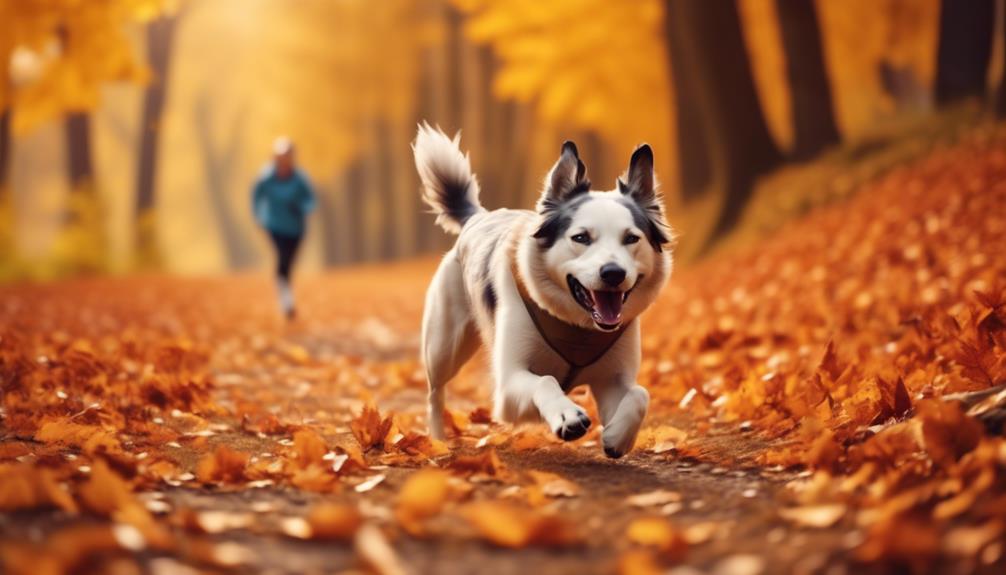
Considering the exercise needs and energy levels of Tornjak dogs is important for their overall well-being and fulfillment. These dogs are known for their high energy levels and require a significant amount of exercise and mental stimulation. They have a vigorous approach to life, engaging in activities such as jumping, playing, and exploring.
Matching their exercise needs with your own activity level and lifestyle is crucial for a better quality of life for both you and your Tornjak. Lack of exercise can lead to behavioral problems like excessive barking, chewing, and digging.
It’s important to provide them with a minimum of 45 minutes of exercise and playtime each day, along with regular training sessions and mental stimulation. Proper exercise and energy outlets are essential for their physical and mental well-being.
Health, Care, and Other Considerations

Taking care of your Tornjak’s health and well-being involves various considerations and responsibilities. Tornjaks are generally a healthy breed, but like any dog, they can be vulnerable to specific health conditions. Common health problems in Tornjaks include hip dysplasia and elbow dysplasia, as well as coat issues such as allergies and infections.
Regular grooming and maintenance are important to keep their thick and wooly coat in good condition. Providing ample outdoor time and exercise is crucial, with a minimum of 45 minutes of exercise and playtime each day. Tornjaks are sociable dogs and may not tolerate being left alone for extended periods.
A well-balanced diet tailored to their energy requirements, measured food portions, and twice daily feeding are necessary to prevent weight gain. Additionally, proper socialization and training from a young age are crucial for their well-being.
Adoption and Finding a Reputable Breeder

When looking to bring a Tornjak into your home, it’s important to consider adoption or finding a reputable breeder. Here are three key points to keep in mind:
- Adoption: Check local shelters for Tornjaks in need of adoption. While finding Tornjak-specific rescues might be challenging due to their rarity, exploring rescues that cater to various dog breeds is another option. Additionally, consider adopting from a shelter or rescue organization as it’s a commendable choice that gives a deserving dog a second chance at a loving home.
- Reputable Breeder: Finding a reputable dog breeder is crucial. Reputable breeders breed healthy, well-socialized puppies and screen their breeding stock for health problems. Puppies from reputable breeders are socialized from a young age, and the breeders provide lifetime support, ensuring that you have guidance and assistance throughout your Tornjak’s life.
- The Selection Process: Take the time to research and visit potential breeders or shelters. Ask questions about health clearances, socialization efforts, and the breeder’s experience with Tornjaks. Assess the living conditions and temperament of the dogs. By being diligent in your selection process, you increase the chances of finding a healthy and well-adjusted Tornjak to welcome into your home.
Frequently Asked Questions
Are Tornjaks Good With Children and Other Pets?
Yes, tornjaks are generally good with children and other pets. They can form close bonds with kids and coexist well with certain domestic animals. However, supervision is key when dealing with active dogs and young children.
How Often Should Tornjaks Be Groomed?
You should groom your Tornjak regularly, especially during shedding season. Weekly brushing sessions are generally sufficient, but you may need to increase brushing when they are shedding.
What Is the Average Lifespan of a Tornjak?
The average lifespan of a Tornjak is 12-14 years. They are known for their loyalty and protective nature. Keep them healthy with regular exercise, proper grooming, and a balanced diet. Seek professional help for any behavior or health concerns.
Are Tornjaks Prone to Any Specific Health Conditions?
Tornjaks can be prone to specific health conditions such as hip dysplasia and coat issues like allergies. Regular grooming, ample exercise, and a well-balanced diet are important for their overall health and well-being.
Do Tornjaks Require a Lot of Training and Socialization?
Yes, tornjaks require a lot of training and socialization. This helps them develop good manners, prevents behavioral problems, and strengthens the bond between you and your dog. It is essential for their overall well-being.
Conclusion
In conclusion, the Tornjak dog breed is an ideal choice for those seeking a loyal and protective companion.
With their intelligence, trainability, and deep affection for their families, Tornjaks make wonderful pets. They’re adaptable to various living environments and have a unique temperament that combines love for their family with wariness towards strangers.
Proper training, socialization, and care are essential for their well-being. Whether you’re considering adopting a Tornjak or simply want to learn more, this breed offers a special and rewarding bond for dog lovers.




